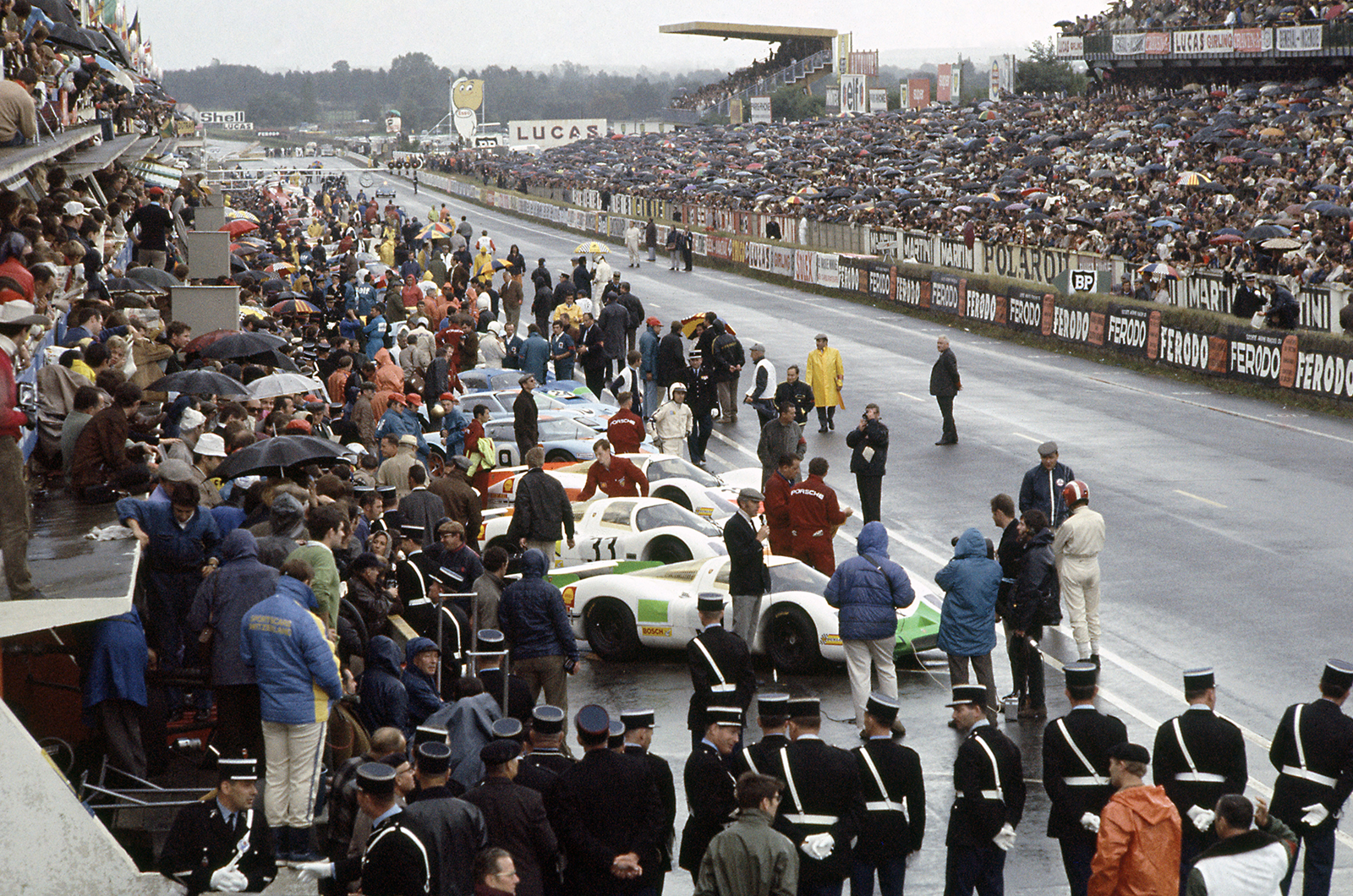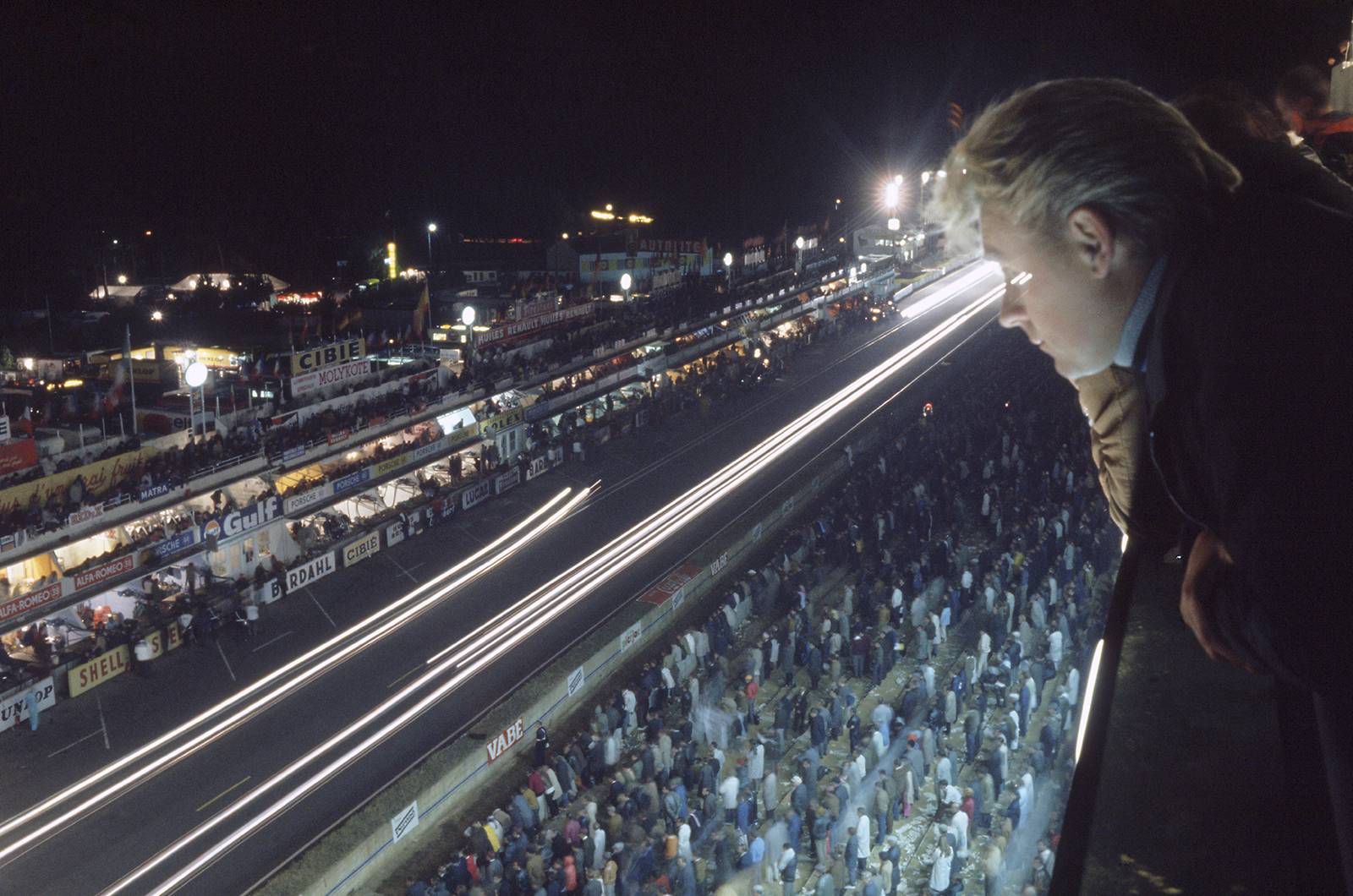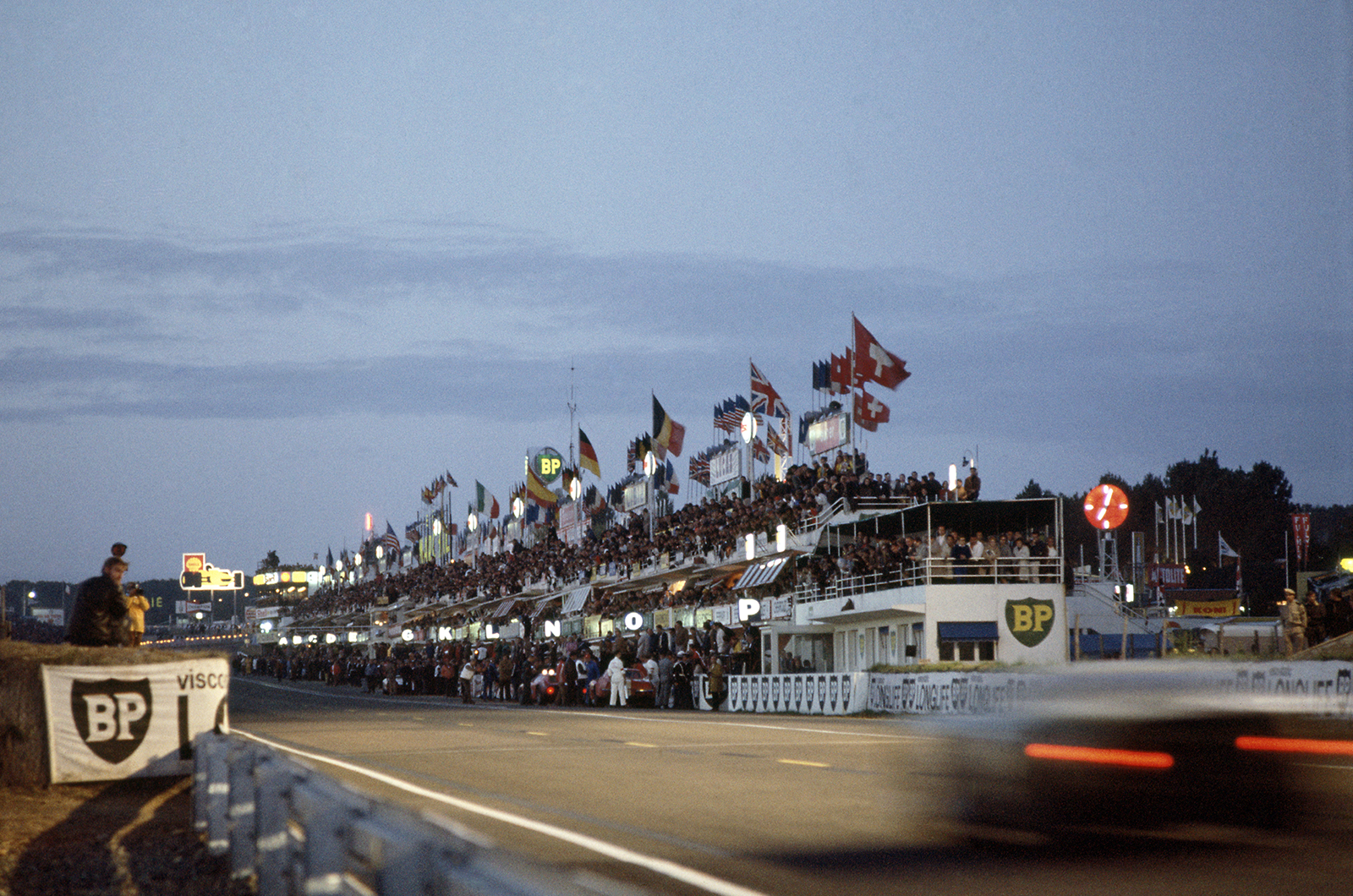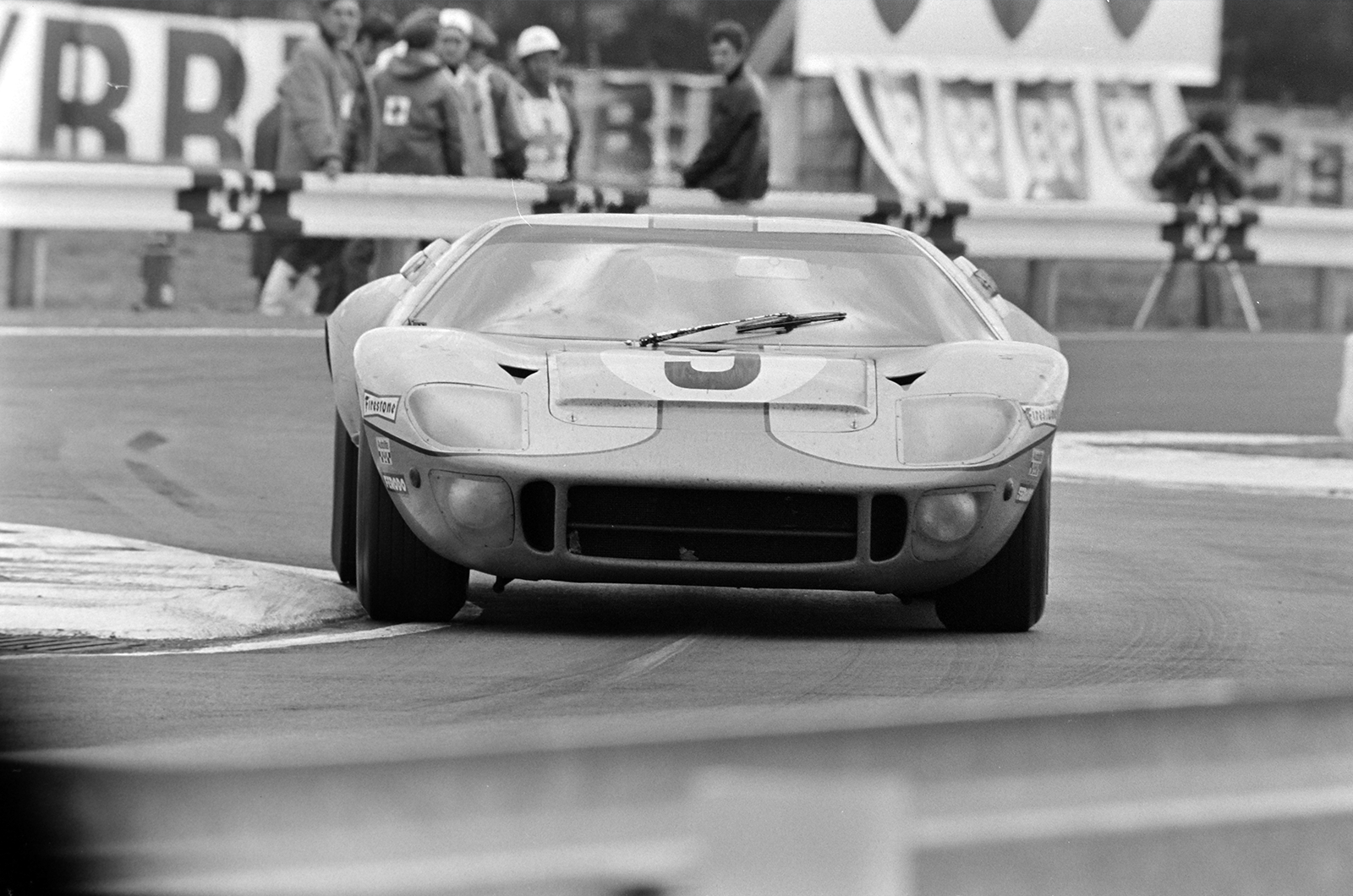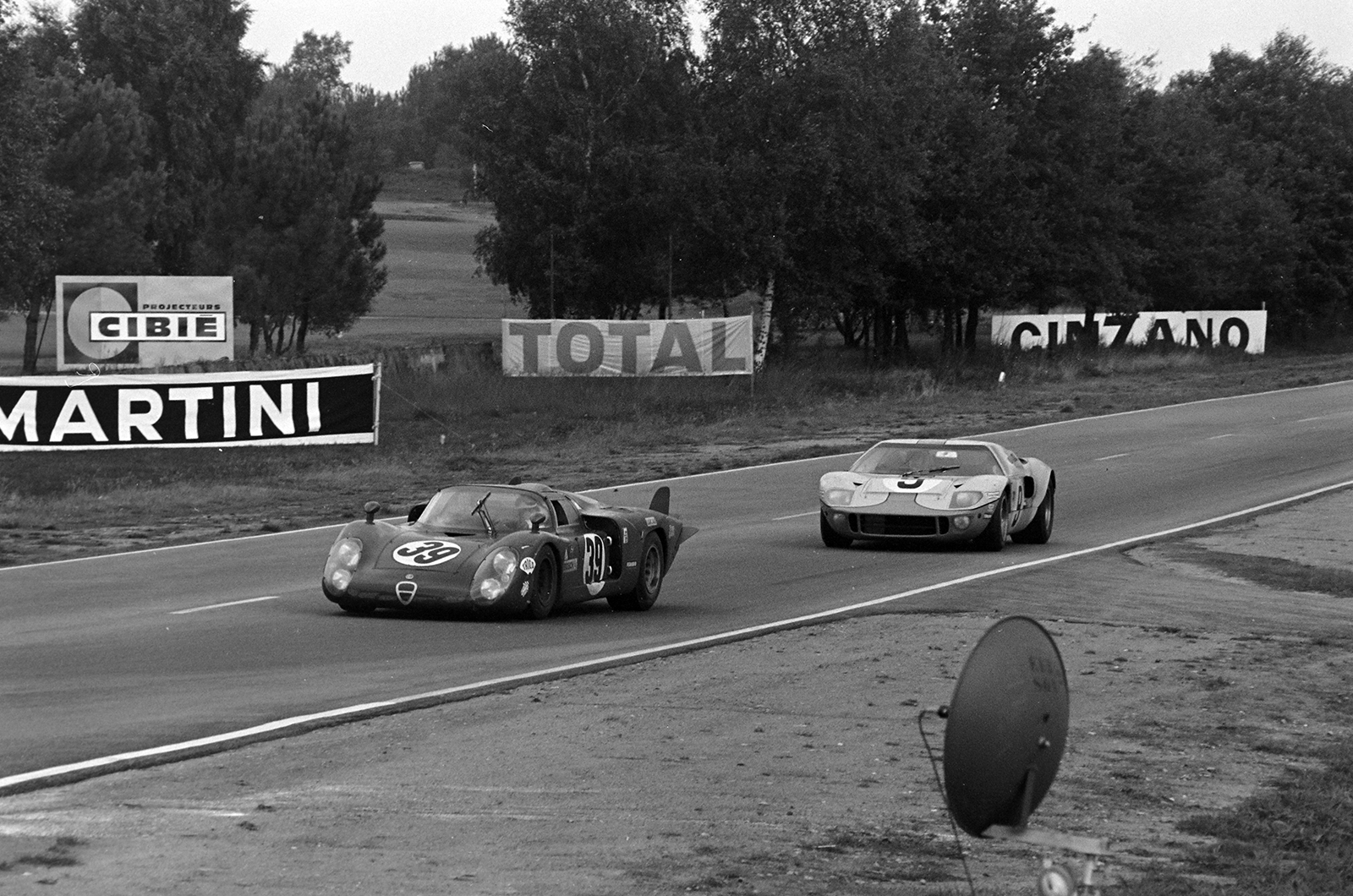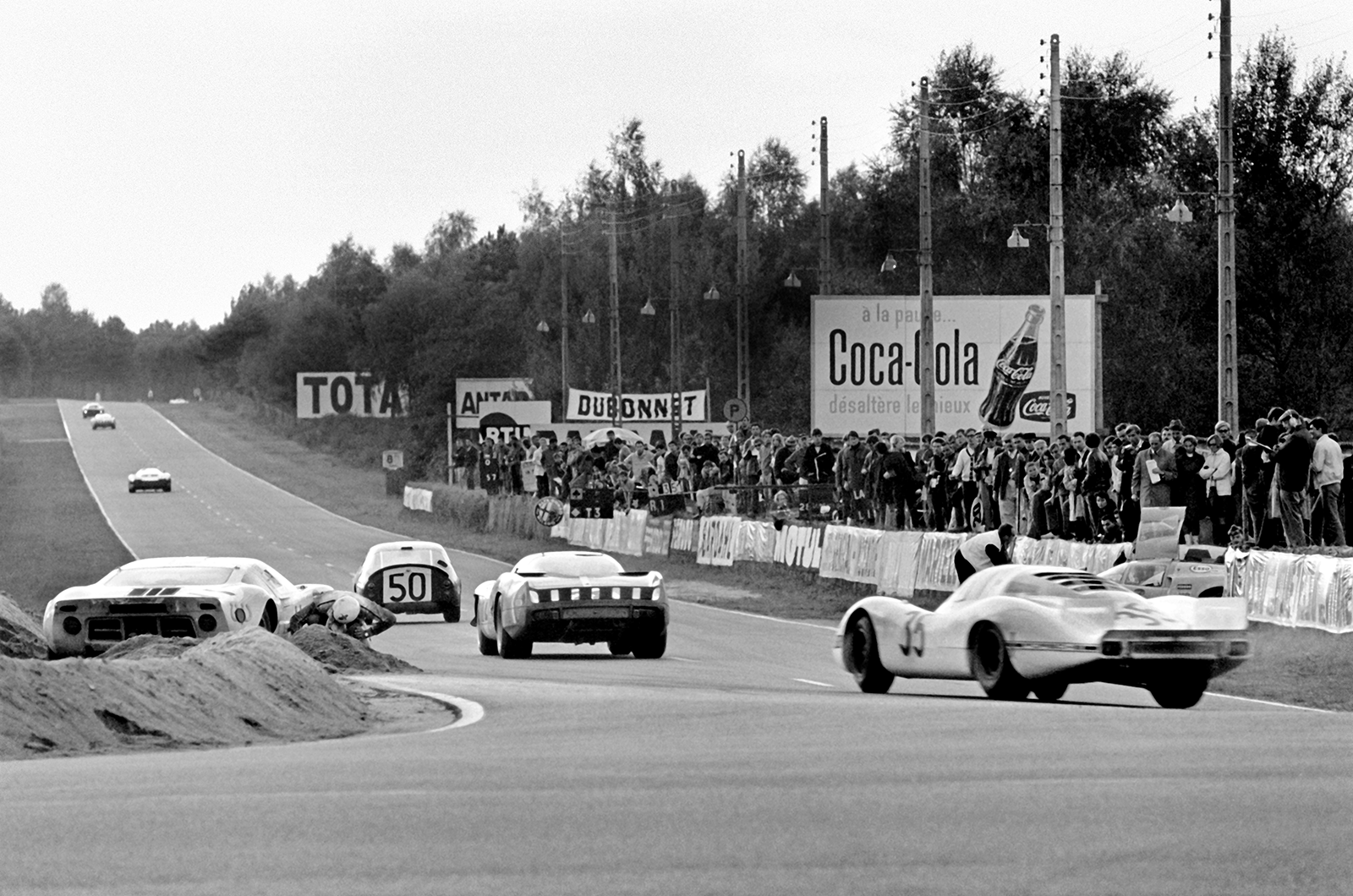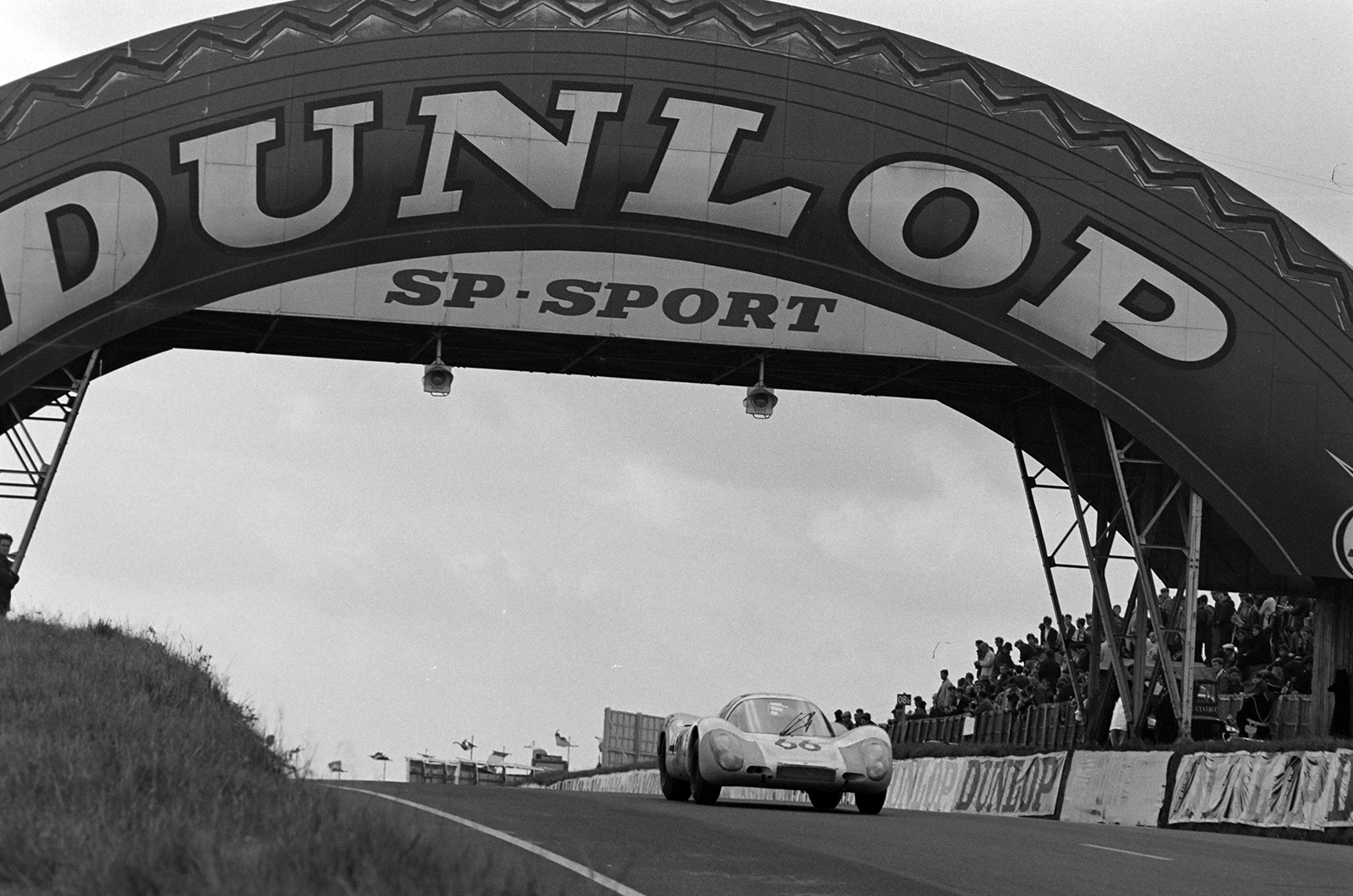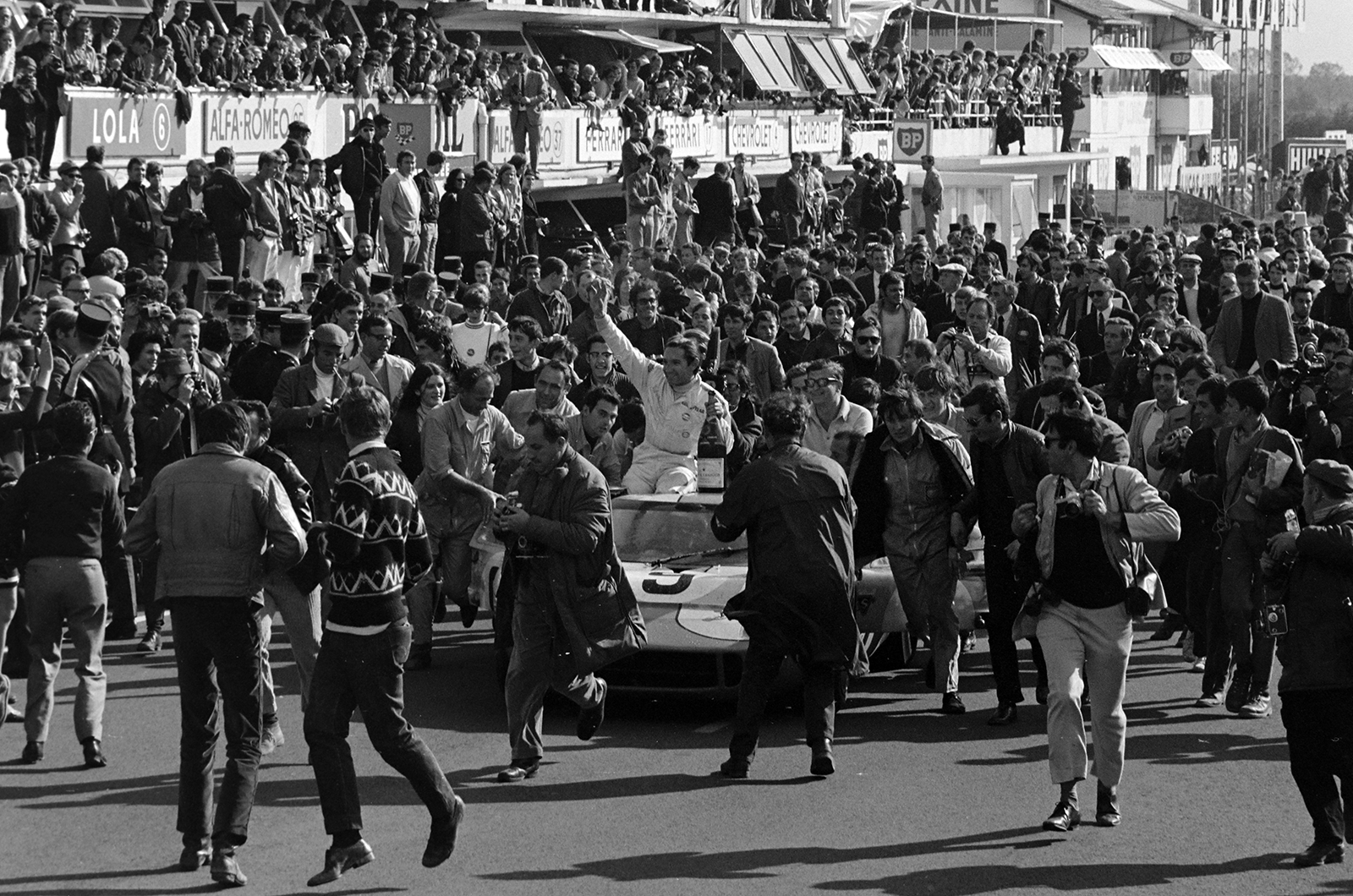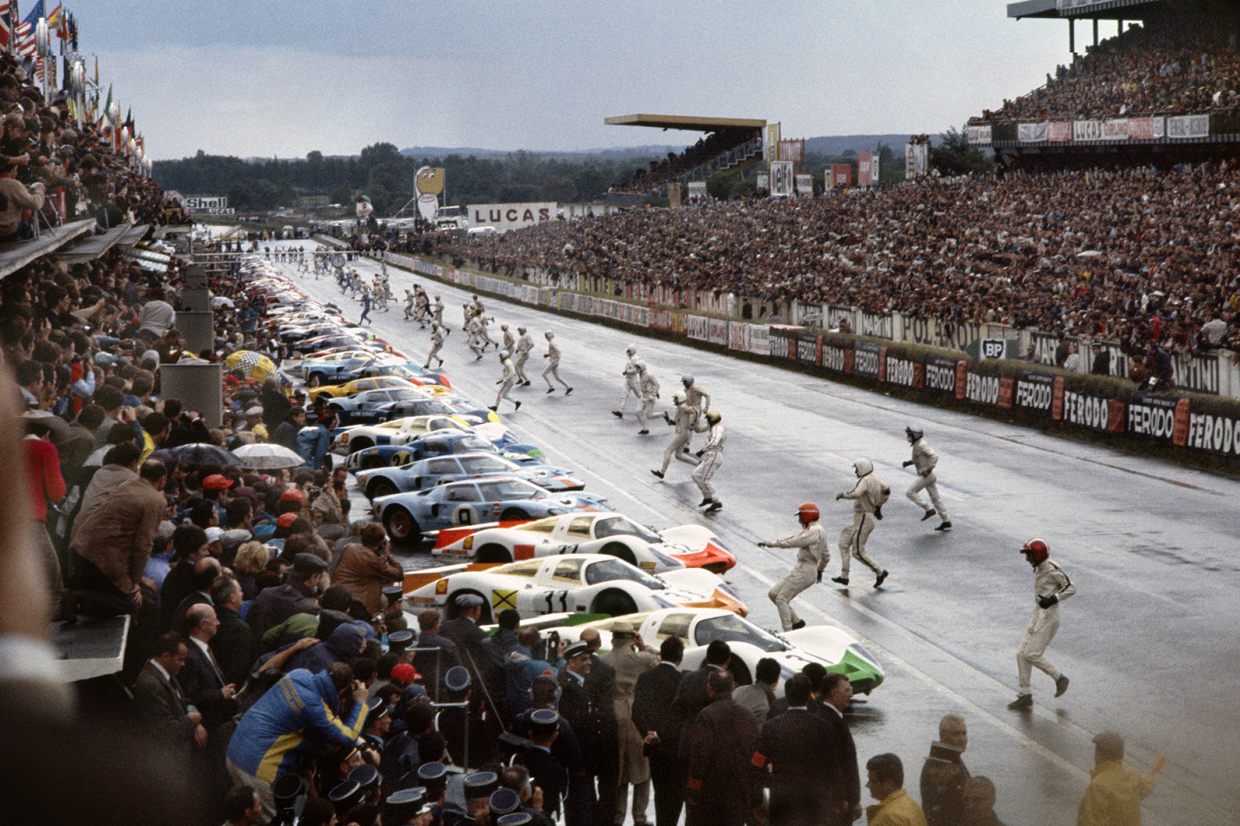
When the Automobile Club de l’Ouest took the decision to postpone the 2020 24 Hours of Le Mans, you suspect there was one month they pinpointed first: September.
The month of May, not an option this year for obvious reasons, has hosted twice: it was the month of the very first race to take on the name and the month in which the 1986 edition began but didn’t end (it started on 31 May, is the answer to that riddle).
In 1924 the race settled into its now familiar date in mid June, pushing into July in 1956 as works were completed in response to the awful scenes the year before, but rarely moving since. Like Indy and Monaco in the Month of May, title case required in America for its month-long action at Indianapolis, the biggest races take up station in the calendar and seldom move.
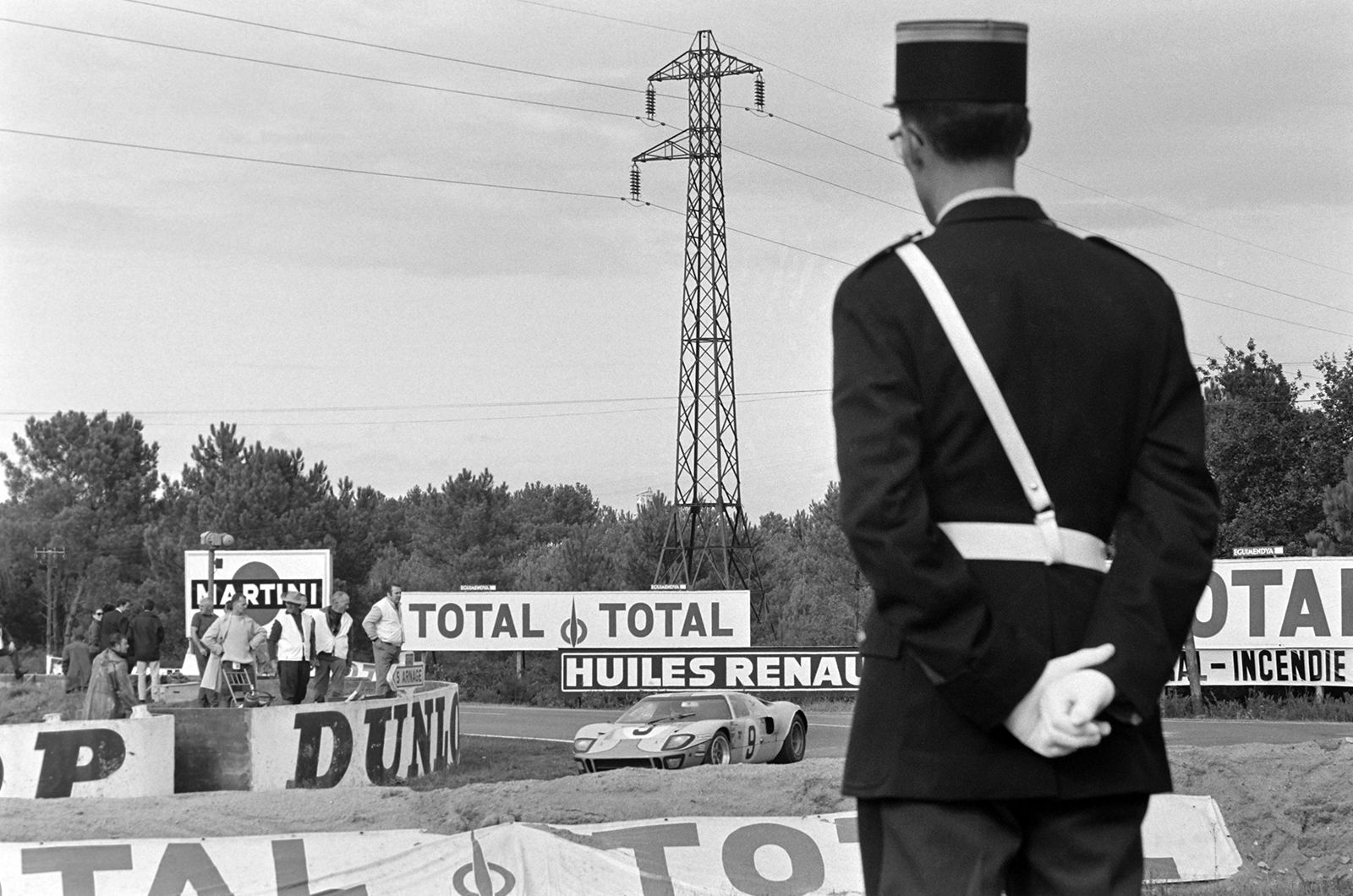
A gendarme watches on as the Rodríguez/Bianchi passes in ’68
Yet in 1968, not even Le Mans was sacred enough to be affected by the goings on around it. This was a real French revolution, with international beginnings. The worldwide civil unrest entered Paris via the university and set the country on a liberal course.

